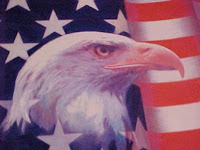On Independence Day, Nancy and I enjoyed celebratory music offered by the New York Philharmonic and the Hellcats and Jazz Knights from the West Point Band.
The conductor, Bramwell Tovey, leapt to the podium, pointed his baton at the Philharmonic snare drummer and we were instantly on our feet for “The Star Spangled Banner.” We attempted to sing, but were caught up in the emotions of the moment reflecting the history of this anthem.
Familiar tunes from On the Town and Candide roused the audience as a packed house settled into the coolness of Lincoln Center, avoiding the intense heat of New York City outside.
The West Point Hellcats and Jazz Knights offered stirring renditions of “America the Beautiful,” Glen Miller’s “In the Mood,” and several military marches, including Sousa’s “Liberty Bell.”
There can be few scenes that stir the soul of a former military person than the sight and sound of a precision drum and bugle corps blaring forth from bright silver horns and philharmonic field drums very strong cadences that reminded me of my favorite march of all time, “The Guadalcanal March” from Richard Roger’s World War II suite, Victory at Sea.
There can be few scenes that stir the soul of a former military person than the sight and sound of a precision drum and bugle corps blaring forth from bright silver horns and philharmonic field drums very strong cadences that reminded me of my favorite march of all time, “The Guadalcanal March” from Richard Roger’s World War II suite, Victory at Sea.
Following these selections conductor Army Lt. Colonel Jim Keene invited all current and past service personnel and their families to stand during the playing of their respective anthems, “Semper Paratus (Coast Guard), Anchors Aweigh, The Marine Hymn, The Caisson Song (Army) and The Wild Blue Yonder (Air Force).” Men and women, young and old, stood in silent attention at their seats as the corps musicians in crisp blue uniforms brought all of us to memories of having served this great nation, and of those who paid the last full measure.
 All during these emotionally-charged performances I recalled having read the Declaration of Independence in the morning’s New York Times. There were the words that laid the foundation for our country, “When in the course of human events, it becomes necessary for one people to dissolve the bands which have connected them with another. . . We, therefore. . .declare, That these United Colonies are, and of Right ought to be Free and Independent States. . .”
All during these emotionally-charged performances I recalled having read the Declaration of Independence in the morning’s New York Times. There were the words that laid the foundation for our country, “When in the course of human events, it becomes necessary for one people to dissolve the bands which have connected them with another. . . We, therefore. . .declare, That these United Colonies are, and of Right ought to be Free and Independent States. . .”Most memorable, perhaps, are the words that each of us is endowed by our “Creator with certain unalienable rights, Life, Liberty and the Pursuit of Happiness.” Derived from writings of John Locke--who championed the pursuit of Life, Liberty and Property--Jefferson changed Property to Happiness, a word for which he then invoked civic virtues of courage, justice and, perhaps, service.
Another thing that struck me was that “imposing taxes without our consent” was listed by Jefferson in the middle of a much longer list of grievances, commencing with “He—[King George III]—has refused his Assent to Laws, the most wholesome and necessary for the public good. . .” and ending with references to “Quartering large bodies of armed troops among us. . . suspending our own Legislatures. . . excited domestic insurrections amongst us” and caused the impressment of our sailors at sea.
What I remember from high school US History are the grievances about taxes, the Stamp tax, Tea Party and the like. How time has faded our memories of original causes.
 The most stirring tune on Independence Day was, of course, John Philip Sousa’s magnificent “Stars and Stripes Forever;” its cadences sent our hearts to marching inwardly in ways that would be reflected that evening by seeing James Cagney as George M. Cohan, creator of “Yankee Doodle Dandy” and “Over There,” strut, march, parade himself across the stage in his own inimitable fashion. For these two hymns Franklin Roosevelt awarded Cohan the Congressional Medal of Honor.
The most stirring tune on Independence Day was, of course, John Philip Sousa’s magnificent “Stars and Stripes Forever;” its cadences sent our hearts to marching inwardly in ways that would be reflected that evening by seeing James Cagney as George M. Cohan, creator of “Yankee Doodle Dandy” and “Over There,” strut, march, parade himself across the stage in his own inimitable fashion. For these two hymns Franklin Roosevelt awarded Cohan the Congressional Medal of Honor. We were reminded once again that freedom comes with high costs; that thousands have given their lives that we might breathe free and speak our own minds. A little sign on the walker of a WWII veteran and friend of my mother’s says it all, “If you can read this, thank a teacher. If you’re reading it in English, thank a GI."

Every year we need to be reminded of how we came together to establish this great country on the ideas of Liberty, Equality and the Happiness of those civic virtues--courage, justice and public service. And how on so many occasions our parents and grandparents sacrificed as necessary on all fronts--abroad and at home--to preserve, protect defend these rights.





